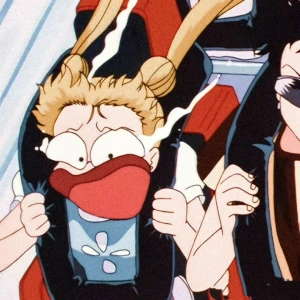 皮皮
皮皮-
Japan is a land of extremes, of ancient history and high-tech gadgets. Sushi, sake, sumo, samurai, geishas, gardens, bonsai, karate, kabuki and Zen are just some of the world-renowned icons of Japanese culture.
Ancient ritual and dynamic pop culture live and breathe side by side. You can spend weeks soaking up traditional culture from Japan"s many temples, kabuki theatre, tea ceremonies and extraordinary museums. If contemporary culture and high-technology is more your thing, you"ll find futuristic wonderlands in Japan"s captivating cities of shimmering skyscrapers, pumping discos, and spirited sake and sushi houses.
Home to over 127 million people, Japan"s emerald isles float along the eastern rim of the Asian continent, spreading for over 3,000 kilometres and accumulating nearly 30,000 kilometres of coastline. Ranging all the way from sub-arctic Hokkaido to sub-tropic Okinawa, the Japanese archipelago hosts a wide variety of flora and fauna. With a land mass slightly smaller than California or equivalent to Germany, Japan"s urban areas are the most densely populated in the world.
Japan consists of four major islands and around 3,900 smaller ones. The main islands are Hokkaido in the north, the large central island of Honshu (home of Tokyo), and the smaller southern islands of Shikoku and Kyushu. These dramatic islands are made up of steep mountains, deep verdant valleys, lakes and winding rivers flowing into large deltas and bustling harbours. Most of the country"s mountains are volcanic causing Japan to be one of the most seismically active regions of the world. However, serious earthquakes and tsunamis only occur several times in a century. For the most part, Japan registers only small tremors. From all this geological activity, the country is blessed with an abundance of healing hot springs and spectacular scenery.
Japanese is the official language of course, and many Japanese are able to understand some English to a certain extent since it is part of compulsory education. Trying out a few common Japanese phrases will make your trip even more special. A little bit goes a long way. However, you don"t need to understand Japanese to enjoy Japan.
Japan was traditionally settled in 660 B.C., by various clans of indigenous people. Written history began in the 5th century A.D. and Buddhism was introduced from China in the 6th century. Rivalry between Buddhism and Shinto (Japan"s traditional religion) was defused by presenting Shinto deities as manifestations of Buddha. Today the two religions co-exist and are practiced peacefully, with many festivals and celebrations.
During a long feudal period between the 12th and 19th centuries, military power was held by the shoguns and samurais. Japan closed its borders, forbidding its citizens to leave and foreigners to enter. This national seclusion came to an end when shogun dominance was overthrown by the imperial power of Emperor Mutsuhito in 1868. Feudalism was abolished, and the country opened up to Western trade and industrial technology. Today Japan is highly industrialized and noted for its advanced technology.
The capital of Japan is Tokyo, a massive dazzling city where the old and the new collide into an endless array of exotic sights and sounds. With more than 12 million people, Tokyo radiates exuberant energy, offering fascinating and unique discoveries at every turn.
Kyoto is the cultural capital of Japan presenting a treasure of enchanting temples, immaculate gardens and the ancient Nijo Castle. If you overdose on temples, try feasting on some of the finest food in Japan or hiking through majestic mountain trails. Kyoto makes an excellent base in which to explore the surrounding cities of Osaka, Nara and the other regions of the Kansai Plains.
Osaka is one of Japan"s largest cities and lies in the great Kansai Plains. Highly commercialized with fabulous shopping districts, Osaka is famous for its kabuki theatre, bunraku (a unique form of puppet theatre), Osaka Castle, hearty cuisine and down-to-earth people, revealing a sophisticated and lively atmosphere, especially at night.
Hokkaido is the second largest of the Japanese islands, but the least populated. As Japan"s northernmost island, snowfall is abundant, making it the main winter resort and sport area in Japan. The island"s capital of Sapporo hosted the 1972 Winter Olympics. Hokkaido"s scenic beauty is preserved within several national parks, encompassing vast forests, rugged mountains and Japan"s second longest river, the Ishikari.
Okinawa is a group of tiny islands within the Ryukyu Island chain in south western Japan, surrounded by some of the clearest sea water in the world. With a welcoming subtropical climate, the Ryuku archipelago extends for over 1000 kilometres, home to an abundance of wildlife, dense forests, mountains, caves, coral reefs and the most beautiful beaches in Japan. Having historically been a separate nation, Okinawa"s language and culture differ considerably from mainland Japan, making it a fascinating place to visit.
Nagoya is a culturally rich 16th century fortress city on the main island of Honshu. Nagoya has many universities, the magnificent Nagoya Castle and two famous shrines, one of which houses the sacred imperial Kusanagi sword, along with thousands of national treasures. The Tokugawa Art Museum, Higashiyama Park, and an art museum partnered with the Boston Museum of Fine Arts are other attractions.
Yokohama is a large city 30 kilometres south of Tokyo on the shores of Tokyo Bay. As the birth place of Japan"s first railroad, Yokohama today is connected to Tokyo by several railway lines as well as numerous expressways. Almost entirely destroyed by an earthquake and fire in 1923, it was quickly rebuilt and modernized and is now a leading port and industrial centre. It is home to historical and tranquil Sankeien Garden, the Ramen Noodle and Curry Museum, and one of Japan"s tallest buildings, the Landmark Tower, standing at nearly 300 metres.
Fukuoka is a prosperous seaside city on the southern island of Kyushu, bordered by mountains and the Sea of Genkai. Less seismically active than other areas of Japan, Fukuoka is famous for its Hakata dolls, rich agriculture, universities, and three prominent shrines. Fukuoka Castle, Ohori Koen Park and one of the world"s tallest Ferris wheels, Sky Dream Fukuoka, are other notable landmarks of Fukuoka.
Visiting Japan can be enjoyable in every season of the year. Spring and autumn bring temperate weather and colourful foliage and flowers. Wintertime is ideal for enjoying winter sports and hot springs, while summer brings a plethora of fascinating festivals.
The climate varies from sub-arctic in the north to sub-tropic in the south. Rainfall varies across the nation but is quite regular year round and usually a bit heavier during summer and autumn.
 小菜G
小菜G-
Japan is a land of extremes, of ancient history and high-tech gadgets. Sushi, sake, sumo, samurai, geishas, gardens, bonsai, karate, kabuki and Zen are just some of the world-renowned icons of Japanese culture.
Ancient ritual and dynamic pop culture live and breathe side by side. You can spend weeks soaking up traditional culture from Japan"s many temples, kabuki theatre, tea ceremonies and extraordinary museums. If contemporary culture and high-technology is more your thing, you"ll find futuristic wonderlands in Japan"s captivating cities of shimmering skyscrapers, pumping discos, and spirited sake and sushi houses.
Home to over 127 million people, Japan"s emerald isles float along the eastern rim of the Asian continent, spreading for over 3,000 kilometres and accumulating nearly 30,000 kilometres of coastline. Ranging all the way from sub-arctic Hokkaido to sub-tropic Okinawa, the Japanese archipelago hosts a wide variety of flora and fauna. With a land mass slightly smaller than California or equivalent to Germany, Japan"s urban areas are the most densely populated in the world.
Japan consists of four major islands and around 3,900 smaller ones. The main islands are Hokkaido in the north, the large central island of Honshu (home of Tokyo), and the smaller southern islands of Shikoku and Kyushu. These dramatic islands are made up of steep mountains, deep verdant valleys, lakes and winding rivers flowing into large deltas and bustling harbours. Most of the country"s mountains are volcanic causing Japan to be one of the most seismically active regions of the world. However, serious earthquakes and tsunamis only occur several times in a century. For the most part, Japan registers only small tremors. From all this geological activity, the country is blessed with an abundance of healing hot springs and spectacular scenery.
Japanese is the official language of course, and many Japanese are able to understand some English to a certain extent since it is part of compulsory education. Trying out a few common Japanese phrases will make your trip even more special. A little bit goes a long way. However, you don"t need to understand Japanese to enjoy Japan.
Japan was traditionally settled in 660 B.C., by various clans of indigenous people. Written history began in the 5th century A.D. and Buddhism was introduced from China in the 6th century. Rivalry between Buddhism and Shinto (Japan"s traditional religion) was defused by presenting Shinto deities as manifestations of Buddha. Today the two religions co-exist and are practiced peacefully, with many festivals and celebrations.
During a long feudal period between the 12th and 19th centuries, military power was held by the shoguns and samurais. Japan closed its borders, forbidding its citizens to leave and foreigners to enter. This national seclusion came to an end when shogun dominance was overthrown by the imperial power of Emperor Mutsuhito in 1868. Feudalism was abolished, and the country opened up to Western trade and industrial technology. Today Japan is highly industrialized and noted for its advanced technology.
The capital of Japan is Tokyo, a massive dazzling city where the old and the new collide into an endless array of exotic sights and sounds. With more than 12 million people, Tokyo radiates exuberant energy, offering fascinating and unique discoveries at every turn.
Kyoto is the cultural capital of Japan presenting a treasure of enchanting temples, immaculate gardens and the ancient Nijo Castle. If you overdose on temples, try feasting on some of the finest food in Japan or hiking through majestic mountain trails. Kyoto makes an excellent base in which to explore the surrounding cities of Osaka, Nara and the other regions of the Kansai Plains.
Osaka is one of Japan"s largest cities and lies in the great Kansai Plains. Highly commercialized with fabulous shopping districts, Osaka is famous for its kabuki theatre, bunraku (a unique form of puppet theatre), Osaka Castle, hearty cuisine and down-to-earth people, revealing a sophisticated and lively atmosphere, especially at night.
Hokkaido is the second largest of the Japanese islands, but the least populated. As Japan"s northernmost island, snowfall is abundant, making it the main winter resort and sport area in Japan. The island"s capital of Sapporo hosted the 1972 Winter Olympics. Hokkaido"s scenic beauty is preserved within several national parks, encompassing vast forests, rugged mountains and Japan"s second longest river, the Ishikari.
Okinawa is a group of tiny islands within the Ryukyu Island chain in south western Japan, surrounded by some of the clearest sea water in the world. With a welcoming subtropical climate, the Ryuku archipelago extends for over 1000 kilometres, home to an abundance of wildlife, dense forests, mountains, caves, coral reefs and the most beautiful beaches in Japan. Having historically been a separate nation, Okinawa"s language and culture differ considerably from mainland Japan, making it a fascinating place to visit.
Nagoya is a culturally rich 16th century fortress city on the main island of Honshu. Nagoya has many universities, the magnificent Nagoya Castle and two famous shrines, one of which houses the sacred imperial Kusanagi sword, along with thousands of national treasures. The Tokugawa Art Museum, Higashiyama Park, and an art museum partnered with the Boston Museum of Fine Arts are other attractions.
Yokohama is a large city 30 kilometres south of Tokyo on the shores of Tokyo Bay. As the birth place of Japan"s first railroad, Yokohama today is connected to Tokyo by several railway lines as well as numerous expressways. Almost entirely destroyed by an earthquake and fire in 1923, it was quickly rebuilt and modernized and is now a leading port and industrial centre. It is home to historical and tranquil Sankeien Garden, the Ramen Noodle and Curry Museum, and one of Japan"s tallest buildings, the Landmark Tower, standing at nearly 300 metres.
Fukuoka is a prosperous seaside city on the southern island of Kyushu, bordered by mountains and the Sea of Genkai. Less seismically active than other areas of Japan, Fukuoka is famous for its Hakata dolls, rich agriculture, universities, and three prominent shrines. Fukuoka Castle, Ohori Koen Park and one of the world"s tallest Ferris wheels, Sky Dream Fukuoka, are other notable landmarks of Fukuoka.
Visiting Japan can be enjoyable in every season of the year. Spring and autumn bring temperate weather and colourful foliage and flowers. Wintertime is ideal for enjoying winter sports and hot springs, while summer brings a plethora of fascinating festivals.
The climate varies from sub-arctic in the north to sub-tropic in the south. Rainfall varies across the nation but is quite regular year round and usually a bit heavier during summer and autumn.
 北境漫步
北境漫步-
想抄一篇文章我就不帮你了,资料可以上CIA: https://www.cia.gov/library/publications/the-world-factbook/geos/ja.html或 WIKIPEDIA找:https://www.cia.gov/library/publications/the-world-factbook/geos/ja.html
 康康map
康康map-
Japan ( Nihon or Nippon , officially Nippon-koku (help·info) or Nihon-koku) is an island country in East Asia. Located in the Pacific Ocean, it lies to the east of China, Korea and Russia, stretching from the Sea of Okhotsk in the north to the East China Sea in the south. The characters that make up Japan"s name mean "sun-origin", which is why Japan is sometimes identified as the "Land of the Rising Sun".
Japan comprises over three thousand islands,the largest of which are Honshū, Hokkaidō, Kyūshū and Shikoku, together accounting for 97% of land area. Most of the islands are mountainous, many volcanic; for example, Japan"s highest peak, Mount Fuji, is a volcano. Japan has the world"s tenth largest population, with about 128 million people. The Greater Tokyo Area, which includes the capital city of Tokyo and several surrounding prefectures, is the largest metropolitan area in the world, with over 30 million residents.
Archaeological research indicates that people were living on the islands of Japan as early as the Upper Paleolithic period. The first written mention of Japan begins with brief appearances in Chinese history texts from the first century AD.
Influence from the outside world followed by long periods of isolation has characterized Japan"s history. Since adopting its constitution in 1947, Japan has maintained a unitary constitutional monarchy with an emperor and an elected parliament, the Diet.
A major economic power, Japan has the world"s second largest economy by nominal GDP. It is a member of the United Nations, G8, G4 and APEC, with the world"s fifth largest defense budget. It is also the world"s fourth largest exporter and sixth largest importer and a world leader in technology and machinery.
 左迁
左迁-
Japan (日本 Nihon or Nippon , officially 日本国 Nippon-koku (help·info) or Nihon-koku) is an island country in East Asia. Located in the Pacific Ocean, it lies to the east of China, Korea and Russia, stretching from the Sea of Okhotsk in the north to the East China Sea in the south. The characters that make up Japan"s name mean "sun-origin", which is why Japan is sometimes identified as the "Land of the Rising Sun".
Japan comprises over three thousand islands,the largest of which are Honshū, Hokkaidō, Kyūshū and Shikoku, together accounting for 97% of land area. Most of the islands are mountainous, many volcanic; for example, Japan"s highest peak, Mount Fuji, is a volcano. Japan has the world"s tenth largest population, with about 128 million people. The Greater Tokyo Area, which includes the capital city of Tokyo and several surrounding prefectures, is the largest metropolitan area in the world, with over 30 million residents.
Archaeological research indicates that people were living on the islands of Japan as early as the Upper Paleolithic period. The first written mention of Japan begins with brief appearances in Chinese history texts from the first century AD.
Influence from the outside world followed by long periods of isolation has characterized Japan"s history. Since adopting its constitution in 1947, Japan has maintained a unitary constitutional monarchy with an emperor and an elected parliament, the Diet.
A major economic power, Japan has the world"s second largest economy by nominal GDP. It is a member of the United Nations, G8, G4 and APEC, with the world"s fifth largest defense budget. It is also the world"s fourth largest exporter and sixth largest importer and a world leader in technology and machinery.
 蓓蓓
蓓蓓-
The typical Japanese meal consists of a bowl of rice (gohan), a bowl of miso soup (miso shiru), pickled vegetables (tsukemono) and fish or meat. While rice is the staple food, several kinds of noodles (udon, soba and ramen) are cheap and very popular for light meals. As an island nation, the Japanese take great pride in their seafood. A wide variety of fish, squid, octopus, eel, and shellfish appear in all kinds of dishes from sushi to tempura.
Japan has many world famous tourist sites, one of the most famous is Mount Fuji. It is Japan"s highest peak at 3,774 meters, a volcanic cone which last erupted in 1707. It has five relatively easy trails leading to the summit. Nearby are the scenic spots of Fuji Five Lakes, hot springs at the Izu Hanto Peninsula, and the Seven Isles of Izu, which have beaches and snorkeling facilities.
 真可
真可-
Japan is a land of extremes, of ancient history and high-tech gadgets. Sushi, sake, sumo, samurai, geishas, gardens, bonsai, karate, kabuki and Zen are just some of the world-renowned icons of Japanese culture.
Visiting Japan can be enjoyable in every season of the year. Spring and autumn bring temperate weather and colourful foliage and flowers. Wintertime is ideal for enjoying winter sports and hot springs, while summer brings a plethora of fascinating festivals.
Kyoto is the cultural capital of Japan presenting a treasure of enchanting temples, immaculate gardens and the ancient Nijo Castle. If you overdose on temples, try feasting on some of the finest food in Japan or hiking through majestic mountain trails. Kyoto makes an excellent base in which to explore the surrounding cities of Osaka, Nara and the other regions of the Kansai Plains.
Osaka is one of Japan"s largest cities and lies in the great Kansai Plains. Highly commercialized with fabulous shopping districts, Osaka is famous for its kabuki theatre, bunraku (a unique form of puppet theatre), Osaka Castle, hearty cuisine and down-to-earth people, revealing a sophisticated and lively atmosphere, especially at night.
